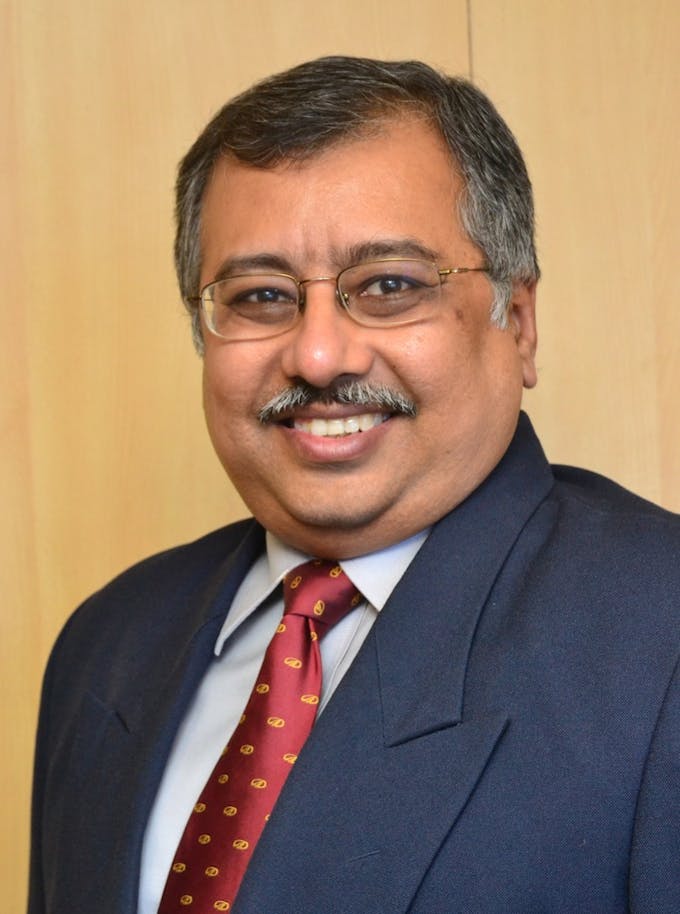“People, planet, profit”: This well-known concept is often cited as a reminder that while businesses need to make money, they must also deliver a positive social impact for their community, and protect the environment. Unfortunately, this is neither cheap nor easy.
But whether businesses are ready or not, there is no turning back the tide of corporate responsibility expectations from consumers, investors, and regulators alike.
Some companies have taken these trends in their stride and have become industry sustainability leaders. Others, such as controversial Korean-Indonesian conglomerate Korindo, accused of cutting down vast swathes of rainforest, are having a harder time of it.
What sets sustainability leaders apart from the laggards? While corporate responsibility is certainly a team effort, results often hinge on the work of one person who oversees efforts to design, implement, and communicate sustainability efforts to a variety of stakeholders.
Enter the chief sustainability officer, or CSO.
Armed with a job title and seniority commensurate with the usual “C-suite” finance, operational, and technical heads of a firm, a CSO typically oversees corporate sustainability efforts, and reports directly to the chief executive officer.
What strategies do these professionals employ to secure financial and human resources for sustainability? What are some easy wins, and what are the pain points of creating change within an organisation? Eco-Business spoke to three CSOs to learn what life is like at the frontline of the corporate sustainability fight.
Esther An, City Developments Limited

Esther An, chief sustainability officer, City Developments Limited. Image: CDL
Esther An, chief sustainability officer at Singaporean property developer City Developments Limited, regularly works 12 hour days, but this isn’t a surprise when one looks at the firm’s long list of sustainability accomplishments.
From the Corporate Knights’ Global 100 Most Sustainable Corporations in the World list to Dow Jones Sustainability Indices to the Channel News Asia Sustainability Ranking, CDL is a star performer on sustainability rankings worldwide.
It also has more properties certified sustainable under Singapore’s national Green Mark scheme than any other private developer in Singapore, and has even led the way when it comes to talking about these achievements.
In 2008, the company made Singapore’s first Global Reporting Initiative-verified sustainability report; in 2015, it became the only property developer to produce an integrated sustainability report which combines corporate responsibility and financial reporting.
“Since the Paris Agreement and United Nations Sustainable Development Goals (SDGs) came into place, life for sustainability practitioners has become most exciting and taxing,” An tells Eco-Business, adding that Singapore’s climate commitments and the recent Budget’s focus on energy and water efficiency add fuel to the fire.
An, who has been with CDL since the inception of its sustainability efforts in 1995, reports directly to the firm’s chief executive officer and its Board Sustainability Committee. Her role includes formulating and implementing the company’s sustainability strategy, and overseeing sustainability reporting.
It is challenging to think of innovative ideas and deliver them, acknowledges An. But it has never been an uphill task convincing the company’s top management or shareholders to devote resources to sustainability, she shares.
The company’s sustainability efforts were started by its late deputy chairman Kwek Leng Joo in the 1990s, and “under his strong guidance and leadership, we secured the Board’s strategic support for sustainability,” says An.
“In fact, the Board and management share the same priority, which is to create value for the company, the business and our shareholders,” she notes.
“Our winning strategy has been our ability to present the long-term business benefits of our sustainability strategies while ensuring that such initiatives will not compromise the company’s short-term performance and financial bottom line,” she explains.
CDL’s sustainability efforts have also paid off for shareholders, she adds.
For instance, when Singaporean regulators recently announced policy measures such as mandatory sustainability reporting for companies from the end of this year, an increase to water tariffs, and a planned carbon tax from 2019 onwards, CDL was well prepared.
This is because it has been producing sustainability reports for close to a decade now and already has targets to reduce the intensity of its carbon emissions, energy usage and water use. So when a price is legislated for greenhouse gas emissions, CDL will not only have a smaller carbon footprint to pay, it would also be less of a shock for the company than for other firms.
The company is also conducting scenario planning exercises to better understand the impact of a carbon tax on its business, and manage any risks that may arise from this new policy expectation.
“Our shareholders have witnessed the strategic advantage of CDL’s foresight and long-term planning through our early adoption of carbon and sustainability strategies,” says An.
With an approach that sees business and environmental value as equal priorities, “there is no need to argue or fight in the boardroom,” she shares.
“
Since the Paris Agreement and United Nations Sustainable Development Goals came into place, life for sustainability practitioners has become most exciting and taxing.
Esther An, chief sustainability officer, City Developments Limited
Jeremy Goon, Wilmar International

Jeremy Goon (in blue), chief sustainability officer, Wilmar, poses with children in the Ivory Coast Image: Wilmar International
As a sustainability advocate in an industry with global supply chains and where environmental and social scandals can hit at any moment, palm oil giant Wilmar’s CSO Jeremy Goon has no concept of “an average workday”.
“My work could take me from visits to our plantations in Indonesia, Malaysia or Africa, to meetings with civil society and business partners, to sustainability conferences with world leaders,” says Goon, who has headed corporate responsibility at Wilmar since 2007.
In addition to ensuring that the Singapore-headquartered firm—which is the world’s largest palm oil trader—meets regulations as well as NGO and community expectations, Goon also pushes for transformation across an industry which has historically caused deforestation, habitat loss, and human rights violations in countries like Indonesia.
He adds: “As the CSO, I need to take a view on trends, risks, and opportunities over the mid to long term. It is my job to ensure that sustainability factors are incorporated into our strategies, resource allocation and operating processes.”
Wilmar’s flagship sustainability initiative is its No Deforestation, No Peat, and No Exploitation (NDPE) Policy, which was announced in December 2013, and applies to the company, its suppliers, and joint venture partners. The policy was an industry-first when it was launched, but most palm oil giants have since launched similar commitments.
“Being the first palm oil company to announce such an ambitious and far-reaching NDPE policy was risky,” recalls Goon, explaining that this is because of the complexity of palm oil supply chains. Sustainable palm oil is also resource-intensive, and requires extensive land audits, community consultations, and supply chain tracking.
And companies don’t always get it right. Wilmar, for instance, in December was the target of an Amnesty International report accusing it of labour abuses in its Indonesian operations.
But despite the challenges, “we don’t see the investment in sustainable resources as a separate or additional cost,” says Goon. “It is now simply the cost of doing business—the license to operate.”
Though it is a heavy investment of effort and resources, sustainability is essential for keeping Wilmar’s shareholders and investors happy, says Goon.
This is because NGOs are increasingly targeting the financial and investor community for funding companies that fail to meet their expectations—a recent campaign by Greenpeace against HSBC for financing deforestation-linked palm oil is one such campaign that can cause heavy reputational damage for companies, their clients, and financiers alike.
One measure that has helped Wilmar in its efforts to be transparent and accountable to its business partners is the Wilmar Sustainability Dashboard, shares Goon. This publicly accessible website communicates every aspect of Wilmar’s corporate responsibility efforts, ranging from greenhouse gas emissions to sustainability certifications to the status of any grievances against the company filed by communities or NGOs.
“The grievance mechanism has been particularly helpful in mitigating the concerns of our investors and shareholders regarding the breaches to our NDPE policy which have been raised against us,” Goon says.
Ultimately, “the competitiveness and longevity of the palm oil industry is a top priority for Wilmar”, he adds. “Transformation towards more sustainable and responsible practices is the only way to maintain this.”
“
We don’t see the investment in sustainable resources as a separate or additional cost.
Jeremy Goon, chief sustainability officer, Wilmar International
Anirban Ghosh, Mahindra Group

Anirban Ghosh, chief sustainability officer, Mahindra Group. Image: Mahindra
Indian industrial giant Mahindra Group is a multibillion-dollar conglomerate of businesses spanning sectors such as automotives and farm equipment, defence, luxury resorts, and clean energy; and it is Anirban Ghosh’s job to make sure they are all operating in a sustainable way.
But while some may think managing sustainability for such a diverse range of businesses is akin to herding cats, Ghosh, has made easy work of solving this challenge.
Ghosh, who has been with Mahindra since 1999 and took over the sustainability reins in 2015, describes his work as keeping a cycle in motion: It starts with figuring out how to measure each business’s progress on sustainability, and goes on to giving businesses the support to implement sustainability efforts, and finally, rewarding good efforts.
What keeps this cycle running smoothly is a sustainability framework that was recently adopted across the company, says Ghosh.
Developed in consultation with sustainability experts and various stakeholders, the framework defines sustainability in a way that is meaningful to the Mahindra Group: “Building enduring businesses, rejuvenating the environment and enabling stakeholders to rise.”
These areas fit nicely into the idea of “people, planet, and profit”, shares Ghosh, adding that the rest of the framework recommends specific strategies to achieve the three outcomes.
Ghosh is especially proud of the “building enduring businesses” goal, as it is critical to getting buy-in from top management and achieving his objectives.
“If you don’t frame it in terms of business longevity, sustainability becomes an altruistic activity which is ‘good to have’”, he explains. “It then gets relegated to periods of time when someone is in a good mood.”
“But the minute you frame environmental and social action as ways of building an enduring business rather than the end goal, it immediately becomes appealing to senior management.”
“
If you don’t frame it in terms of business longevity, sustainability becomes an altruistic activity which is ‘good to have’. It then gets relegated to periods of time when someone is in a good mood.
Anirban Ghosh, chief sustainability officer, Mahindra Group
Some sustainability-oriented actions that prove this are “no-brainers”, says Ghosh. Energy efficiency, for example, saves costs and has high returns on investment.
But at other times, a more long-term view is needed. For instance, investing in protecting the water resources of areas where Mahindra operates “does not necessarily give you cost savings or revenues, but the possibility of one day’s loss of production more than justifies the investment,” says Ghosh.
At other times, sustainability is a conversation about business survival. For instance, Ghosh points to global trends predicting the rapid rise of demand for electric vehicles to explain Mahindra’s own commitment to launching electric cars in India.
“For a corporation that gets 50 per cent of its revenue from fossil fuel-based cars, doing so is not just a matter of environmental sustainability—it’s a matter of business sustainability,” he says.


















